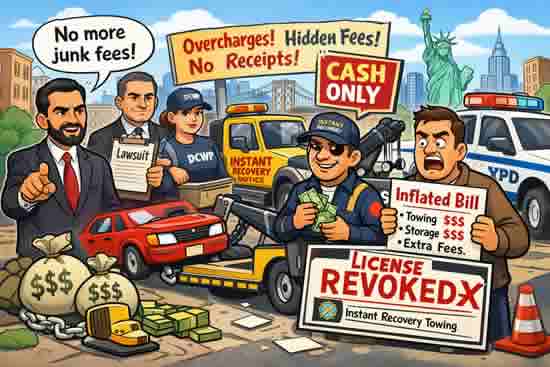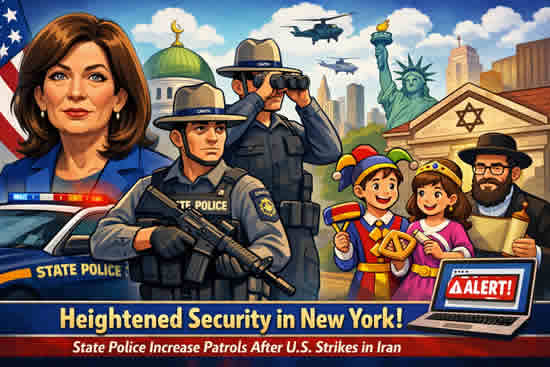On June 18, 2025, Mayor Eric Adams hosted a Juneteenth celebration at Gracie Mansion, reflecting on the resilience of African Americans, particularly through the story of Deputy Mayor Tiffany Raspberry, who overcame childhood trauma in Brooklyn public housing. Adams emphasized Juneteenth as a day to honor ancestors who “ran their mile” in the fight for freedom, passing the baton through generations from Nat Turner to modern leaders like himself, the second African American mayor of New York City. He highlighted city achievements, including reducing Black and brown unemployment by 20%, addressing homelessness, and implementing dyslexia screenings for children. The event also featured a tribute to Congressman Charles B. Rangel, a Harlem legend and military hero, who was awarded the key to the city for his lifelong service. Ambassadors from Uganda, Guinea, Mozambique, Jamaica, Ethiopia, and Haiti were also acknowledged, underscoring the global significance of the occasion.
Mayor Adams Hosts Juneteenth Celebration and Makes Public Service-Related Announcement
Mayor Eric Adams: Thank you so much. You know, many of you may not really have heard that powerful, powerful story that Deputy Mayor Raspberry stated. And when you think about it, you realize the hurdles that we have overcome. And not only the hurdles from her ancestors and the lineage and the moments of enslavement. But there’s one story about Deputy Mayor Raspberry that I tell because many folks don’t realize the resiliency of the African American experience in general, but specifically the resiliency of African American women and what they had to endure.
When Tiffany was a little girl growing up in public housing in Brooklyn, Cooper Houses, she got up one morning and she saw detectives in her living room. And they were investigating the fact that there was a shooting and the bullet went through her window.
And she had to sit down, have a meal, her breakfast, and then she had to go to school and take an examination and then come back home. Think about that for a moment. And if that story was just unique to Deputy Mayor Raspberry, then we can say, well, that’s a unique situation.
But how many times have our young people had to endure a level of trauma and had to normalize it and still had to function like everything was all right? No one in her class that day realized that a bullet went through her window that day because she did not wear her pain, her anger, her frustration.
She knew she had to get up because if our ancestors delivered babies in the cotton fields and then were able to still go out and survive, that [shows] the resiliency that we have to offer and what we made of. And that’s what Juneteenth is about.
Juneteenth is about reflecting on the rich history. Back during the 80s, the early 80s, I was with Reverend Herbert Daughtry and we were marching and protesting the death of a young man named [Randolph] Evans. And I remember sitting in the room, people, and I was a young man at the time. And many of the young people who were there, this was the early 70s.
Now I think about it. Reverend Daughtry and Sam Penn and [inaudible] and all of these giants, these intellectual giants were in the room. And the young people who were there were so frustrated and angry because we saw Clifford Glover. We saw Arthur Miller. We saw Randolph Evans. We saw these young people who were the victims of aggressive policing in our community.
And we were angry and we were frustrated. And we told the elders that were in the room, we told them, you don’t know what should be done. You need to move out of the way. And I remember getting up from my seat and rolling up a piece of paper like it was a baton.
And I went to the front of the room [where the] elders were and I dropped to my knees and I handed them the baton. Because I knew that they ran their mile. And if you look at the complete succession, you’ll understand every group and generation had to run their mile.
Nat Turner had to run his mile and he handed the baton off to Marcus Garvey. Marcus Garvey ran his mile and he handed it off to Rosa Parks. Rosa Parks ran her mile and handed it off to Reverend Sharpton. Reverend Sharpton ran his mile and handed it off to Barack Obama.
Barack Obama ran his mile and handed it off to V.P. Harris. V.P. Harris ran her mile. David Dinkins ran his mile and 30 years later, I’m holding the baton to be the second African American mayor in the City of New York.
It’s about running our mile. And so you don’t look down on those who ran the mile to believe you are going to run a better mile. You just need to lace up your [] sneakers and make sure you win the race and run your mile. That’s what Juneteenth is about. It’s a day of reflection that we got here because people ran the mile before us.
People understood that they would not live long enough. Nat Turner didn’t live long enough to see me become mayor. Marcus Garvey didn’t live long enough to see me become mayor. Malcolm X didn’t see me become mayor. David Dinkins didn’t see me become mayor.
Everyone that ran the mile from Mary Bethune to Rosa Parks to all of these great leaders, they ran the mile so we could be under this tent right now and ensuring we could take someone like a Tiffany Raspberry [whose] ancestors were [enslaved] is now a deputy mayor in the most important city on the globe.
That’s what this moment is about. And that’s why we’re here. Because we leave here and then we go out there and we show the richness of our culture. And what we stand for. And no, we’re not perfect, folks.
In fact, if you’re the perfect one, you need to leave Gracie Mansion. Because this is a place of perfectly imperfect people that are just dedicated to getting the job done. And we did it in this city. They didn’t think we could do it. Drop unemployment by 20 percent in the Black and brown community.
Move more people in housing from homelessness into permanent housing. Go look and see who’s homeless in this city living on our train. They look like you. Invested in our children. Our children are now getting dyslexia screening so they don’t speak 30 percent of our prison population. We have turned this city around.
And it’s been turned around with the ancestors of slaves. And you should be proud of that moment. And we should lift each other up as we continue to endure the challenges that we are facing. And so I’m proud to be running the mile that Mayor Dinkins handed me the baton. He was a hero. He was a valid and brilliant man.
And in that spirit, we’re honoring a group of honorees today who have done their work. They are running their mile. And let’s lift them up as we honor them. And as we continue to acknowledge the power of Juneteenth. It was my honor to name Juneteenth as a city holiday in this city.
It was my honor. It was my honor to be the first mayor to raise the Juneteenth flag at Bowling Green, steps away from where we were sold into slavery. It was my honor. And it’s my honor to welcome all of you here to the People’s House, to Gracie Mansion. Thank you so much.
…
Mayor Adams: Before we close out today, we believe it’s fitting. We believe it’s fitting to honor our giant- but I also want to acknowledge the presence of our ambassador and permanent representative of the Missionary Republic of Uganda, who’s here. Ambassador, the permanent representative of the Mission of the Republic of Guinea, the ambassador and permanent representative of the Republic of Mozambique, our Consul General from Jamaica, our permanent representative from the Republic of Ethiopia, and our ambassador and permanent representative Mission of Haiti, the U.N.
And so we want to do one last presentation before we depart. And that’s for our brother, Congressman Charles B. Rangel. A real American hero and an African American legend.
When you think about what he has accomplished, in 1950, he served in the military, he received the Bronze Star, and he received the Purple Heart for saving his colleagues that were surrounded by Chinese firepower.
In 1970, he later became the congressman in the District of Harlem. And when you look at his contributions, when you look at the commitment that he has served during his time in office, always valiantly, not only serving on the field of battle, but making sure that he lived up to what we all expected from him.
And so I’m proud to give the Lion of Lenox Avenue the key to the city and to just show the brother the love that he deserved. We have here one of his staff members, longtime staff members, Michelle Stent. And we also want to bring up former councilwoman to also participate in this as well.
Such a significant moment to give our congressmen. This key is a key to our heart and our dedication to an amazing, amazing American, an amazing hero, and an African American hero to us all.
June 18, 2025 New York City Hall , Manhattan
Sources: NYC.gov, Big New York news














